The Top Benefits & Uses of Geranium Essential Oil

Geranium’s lilac, pink petals are beloved for their beauty and sweet aroma. In aromatherapy, Geranium is well-regarded for its many wonderful therapeutic properties. If you’re on the fence about Geranium or could use another reason to love it, we’ll discuss the top benefits and uses of Geranium essential oil and why this floral oil is so popular and prestigious in aromatherapy.
What Is Geranium Essential Oil?
Geranium is a flowering plant encompassing over 280 species. At Edens Garden, we offer two varieties of Geranium – Egyptian Geranium and Rose Geranium essential oil, also known as rose-scented Geranium.
Both oils are steam distilled, belong to the same family and genus but are from different species and grown in different parts of the world. If you’re wondering which Geranium essential oil is best, each oil offers similar therapeutic benefits and can be used interchangeably. What sets Geranium (Pelargonium graveolens) and Rose Geranium (Pelargonium roseum) apart is primarily their aromas.
Geranium’s aroma is described as sweet and floral with green, earthy undertones. Rose Geranium is also described as such, but with more refined, rosy notes.
The Geranium plant is characterized as having green, leafy stems and various colored clusters of flowers such as pink, red, purple, white and multicolored. It's often used in gardening and landscaping for its gorgeous aesthetic and propensity to attract birds, butterflies and pollinators.
What Is Geranium Essential Oil Good For?
Geranium oil offers a bevy of uses, including aiding hormonal imbalance, promoting healthy hair, reducing nerve pain and increasing blood circulation. Along with these therapeutic purposes, here are Geranium’s top benefits and uses.
Inflammation
The anti inflammatory properties of Geranium and Rose Geranium are well-researched and often attributed to both oils containing anti-inflammatory citronellol and geraniol. Here’s what studies have shown.
-
A 2013 study examined the anti-inflammatory effects of Rose Geranium. The oil was applied topically to subjects with inflammation and effectively reduced inflammation by 73 and 88%.
-
A Taiwanese University of Biochemistry studied the anti-inflammatory potential of citronellol and geraniol–two major components in Geranium and Rose Geranium oil. The study found that when isolated, each component was mildly anti-inflammatory, but together the components exhibited significant anti-inflammatory properties.
How To Use
-
Topical: To use Geranium oil for local inflammation, dilute the oil to 5% and apply to the area of inflammation twice daily. Reduce dilution to 1% for children.
-
Respiratory: For respiratory inflammation and to soothe airways, diffuse Geranium oil in an essential oil diffuser in 30-60 minute intervals. Reduce to 15-20 minutes for children.
Cleansing
Geranium essential oil is touted as being uniquely antifungal and antibacterial making it an excellent natural cleaner and healer.
-
A 2019 research paper concluded that Geranium is non-toxic and exhibited significant antibacterial and antifungal properties against multiple types of bacteria and fungi, even when used in low dilutions.
-
Scientists examined the antibacterial potential of Geranium and Vitex essential oils. Of the several types of bacteria used in the study, Geranium was found to be antibacterial against all but one type of bacteria.
How To Use
-
Cleaner: Make a natural Geranium cleaner by combining 1 oz 190-proof alcohol and 80 drops Geranium or Rose Geranium (or 40 drops of each) in a glass spray bottle. Let sit for a few hours before adding 3 oz distilled water. Shake to combine. Spray surfaces, doorknobs, sinks and more areas where germs may linger. Let sit and dry or wipe away after 30 seconds.
-
Happy Feet: To clean feet, apply a 5% dilution of Geranium oil to the affected area. Combine 30 drops of Geranium and 2 tbsp of Coconut oil to reach a 5% dilution. Apply twice daily.
-
Purify: To freshen up your space and promote clean air, diffuse Geranium throughout your space.
Anxiety
Geranium oil’s ability to alleviate tension and anxiety is one of our favorite things about this oil, and it may just become yours as well.
A study on women in the first stages of labor found that women who inhaled Geranium experienced significantly less anxiety and lower blood pressure than women who did not.
How To Use
-
Blend: Use Geranium oil alone or pair it with other anxiety-relieving oils to optimize your results. Try the following blend combinations in your diffuser–
-
5 drops Geranium + 5 drops Frankincense essential oil
-
5 drops Geranium + 3 drops Clary Sage + 2 drops Rose essential oil
-
5 drops Geranium + 5 drops Lavender essential oil
Alternatively, add any of the above blends to 2 tbsp of carrier oil and apply to pulse points, such as the wrists, neck, behind the elbows or knees.
Skin Care
Last but certainly not least, Geranium can do wonders for the skin by promoting healthy skin cells and wound healing which is why we added it to our Skin Love essential oil blend.
Geranium oil is compatible with most skin conditions including eczema, psoriasis, acne, rosacea and more. It is gentle enough to be used on delicate facial skin, yet still powerful enough to heal effectively, while preventing skin irritation.
How To Use
1. Face: Create an everyday facial serum by combining 6 drops of Geranium and 2 tbsp of Jojoba oil. Apply to your face as the last step in your routine.
2. Blemishes: Combine 2 drops Geranium, 2 drops Tea Tree and 2 drops Carrot Seed in a 10 ml roll-on. Fill to the top with olive oil and apply to blemishes and imperfections.
3. Body: Create your own body oil by combining 6 drops of Geranium, 6 drops of Helichrysum- Italicum and 6 drops of Frankincense in 2 tbsp of carrier oil. Apply to the body in place of your daily moisturizer.
What Can You Mix With Geranium Essential Oil?
While Geranium works well with almost any blend in need of a floral touch, perfumers often gravitate towards combining Geranium with citruses such as:
-
Sweet Orange
-
Bitter Orange
-
Mandarin
-
Clementine
-
Yuzu
-
Tangerine
-
Lemon
Geranium also blends well with woods, including but not limited to:
-
Oud
-
Buddha Wood
-
Muhuhu
-
Amyris
-
Sandalwood
-
Cedarwood
To experience what a wonderful addition Geranium makes to a blend, try our blends which highlight the aroma and therapeutic benefits of Geranium oil:
Geranium Juniper Berry
Woodsy and floral, Geranium Juniper Berry exudes a fresh, earthy aroma is reminiscent of walking through a forest meadow. This blend is the perfect balance between both masculine and feminine. Along with its delightful aroma, Geranium Juniper Berry is a great addition to any skincare routine and also helps to boost circulation while reducing inflammation.
Skin Love
A blend of some of the most nourishing skin-nourishing essential oils on the market, Skin Love is like a facial in a bottle. This blend is packed with anti-inflammatory properties, helping to soothe damaged, irritated skin and redness. Along with these qualities, Skin Love promotes glowing, youthful, healthier-looking skin.
Spring Garden
A blend that’s quite literally perfect for spring, Spring Garden captures the beauty and rejuvenation of its eponymously named season. Its floral, sweet aroma is as elegant and gorgeous as a well-tended flower garden. Diffuse this blend for a mood boost or to add a bit of sophistication and grandiose to your space.
Sources:
- Wikipedia contributors. “Pelargonium.” Wikipedia, 1 May 2021, en.wikipedia.org/wiki/Pelargonium.
- Boukhatem, Mohamed Nadjib. “Rose Geranium Essential Oil as a Source of New and Safe Anti-Inflammatory Drugs.” PubMed Central (PMC), Oct. 2013, www.ncbi.nlm.nih.gov/pmc/articles/PMC3793238.
- Su, Yu-Wen. “Inhibitory Effects of Citronellol and Geraniol on Nitric Oxide and Prostaglandin E₂production in Macrophages.” PubMed, Oct. 2010, pubmed.ncbi.nlm.nih.gov/20506077.
- Narnoliya, Lokesh Kumar. “The Phytochemical Composition, Biological Effects and Biotechnological Approaches to the Production of High-Value Essential Oil from Geranium.” PubMed Central (PMC), Mar. 2019, www.ncbi.nlm.nih.gov/pmc/articles/PMC7122831.
- Ghannadi, A. “Antibacterial Activity and Composition of Essential Oils from Pelargonium Graveolens L’Her and Vitex Agnus-Castus L.” PubMed Central (PMC), 1 Dec. 2012, www.ncbi.nlm.nih.gov/pmc/articles/PMC3507305.
- Fakari, Fahimeh Rashidi. “Page Not Available.” PubMed Central (PMC), June 2015, www.ncbi.nlm.nih.gov/pmc/articles/PMC4484988.
Grab The Essentials Here:
Leave a comment (Comments will be approved before showing up)
9 comments
Ginny
Love your geranium oil but the flower shown beside the bottle of oil (in your post) is actually a carnation! 😉
ElLois
That’s a carnation not a geranium flower in the photo!! oops!
Connie
Love your products even tho I am new to all this.
Edens Garden
Hi Valerie! We’re happy to hear how Geranium oil has helped you.
We would like people to note that we don’t recommend casual ingestion or oral use of essential oils.
KatyLee
I use the Rose Geranium essential oil as a tick repellent for my dog. I just put a few drops on his collar. It smells good and seems to be working at keeping the ticks from his floppy ears and nose. Next I will probably try making a spray for his feet and underbelly.
Dana Farrell
I have gotten shingles on my arm and hand several times. I use geranium oil to stop the painful burning and itching. It is amazing. Nothing has ever worked as good as this!
Holly
It’s also one of the best for stopping bleeding. Our daughter had frequent nose bleeds in the past and we found simply sniffing geranium stops them most of the time. She carries her own bottle in her purse now.
Valerie
While I have no scientific source, I’ve always used and had success using geranium oil as an anti-viral, especially for cold sores. It tastes horrible, but I’ll mix a drop, or less, with some olive oil, then “dab”/apply with a q-tip to the corners of my mouth, and cold/canker sores disappear, as well as any URI that may have been developing. IDK, maybe it has something to do with the anti-inflammatory/fungal/bacterial properties. Tastes horrible though.



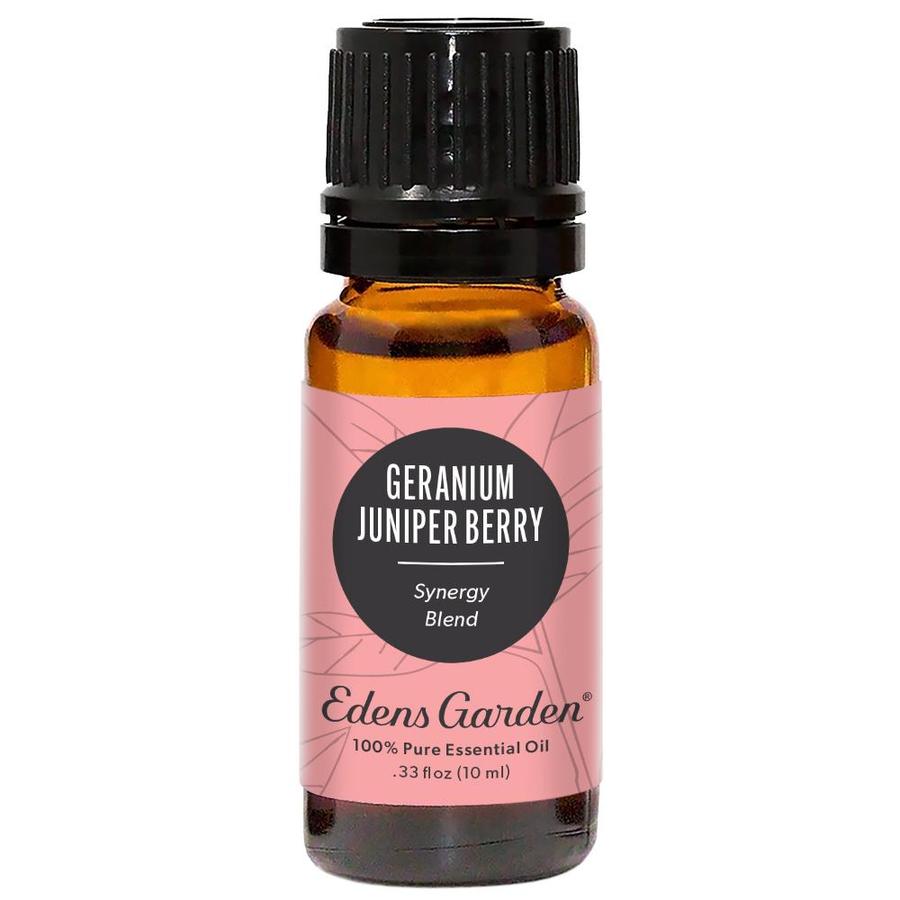
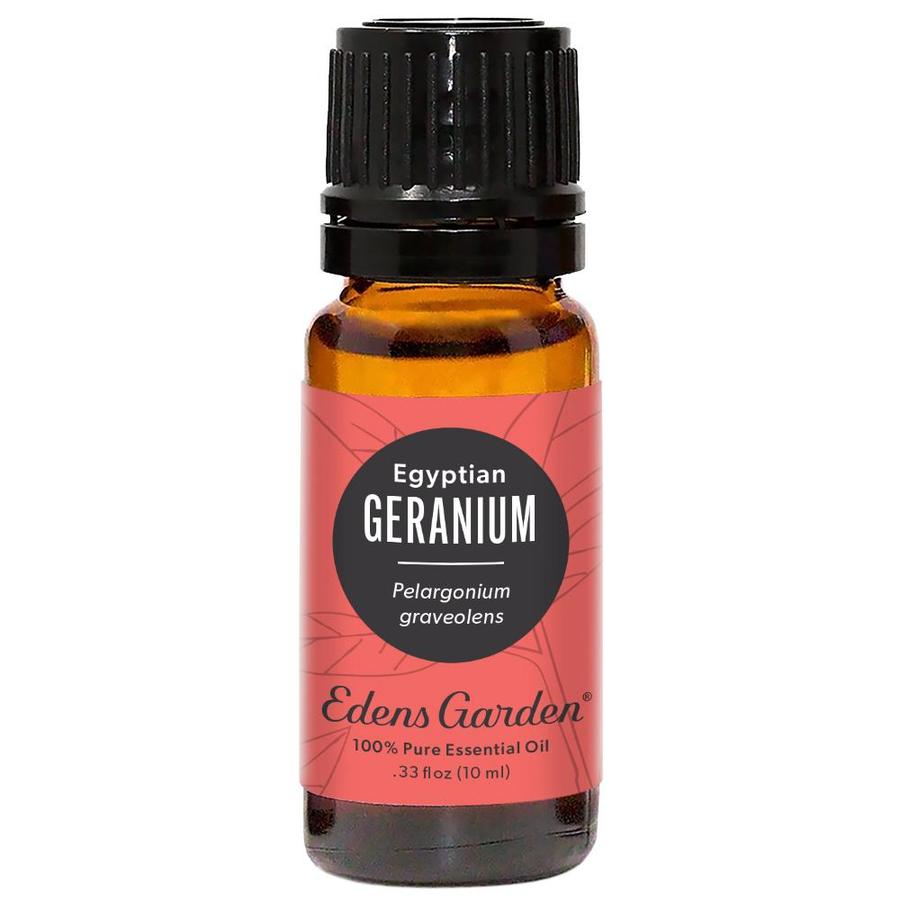
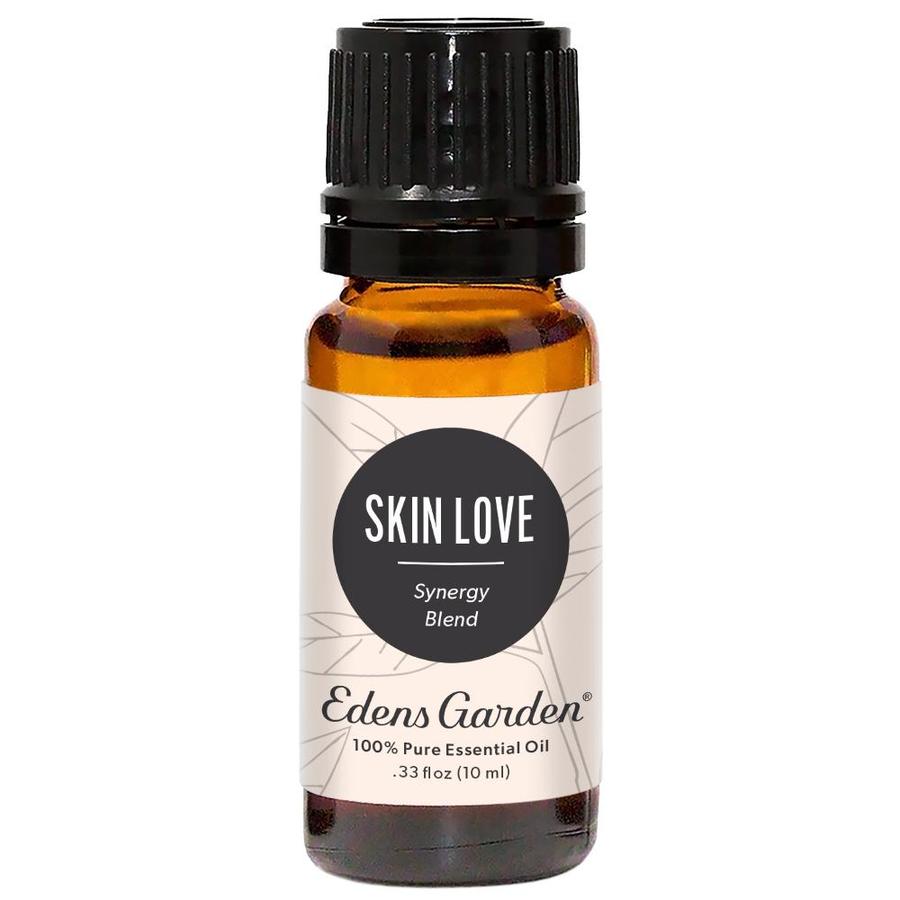
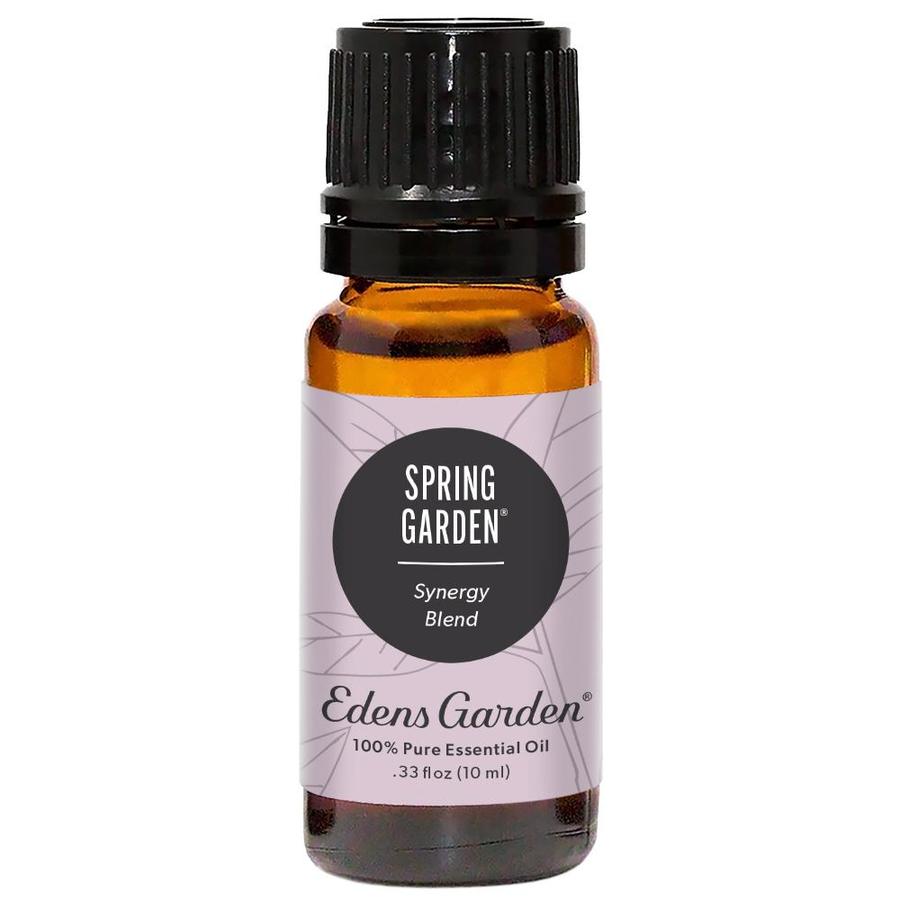
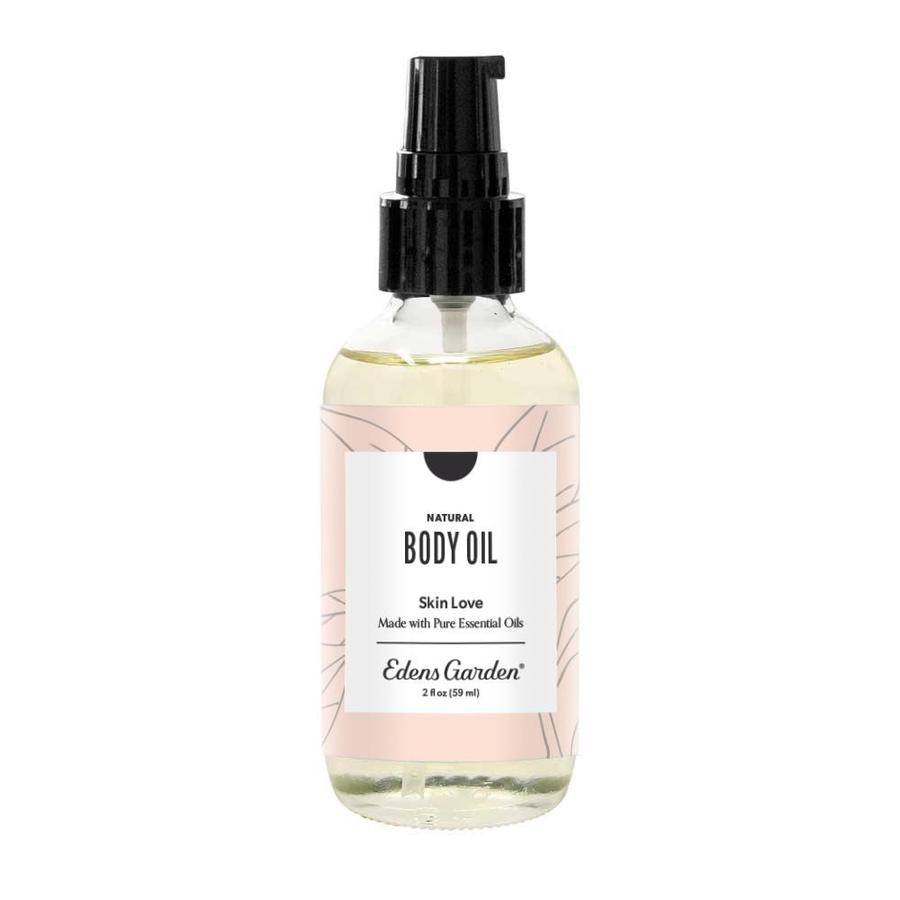
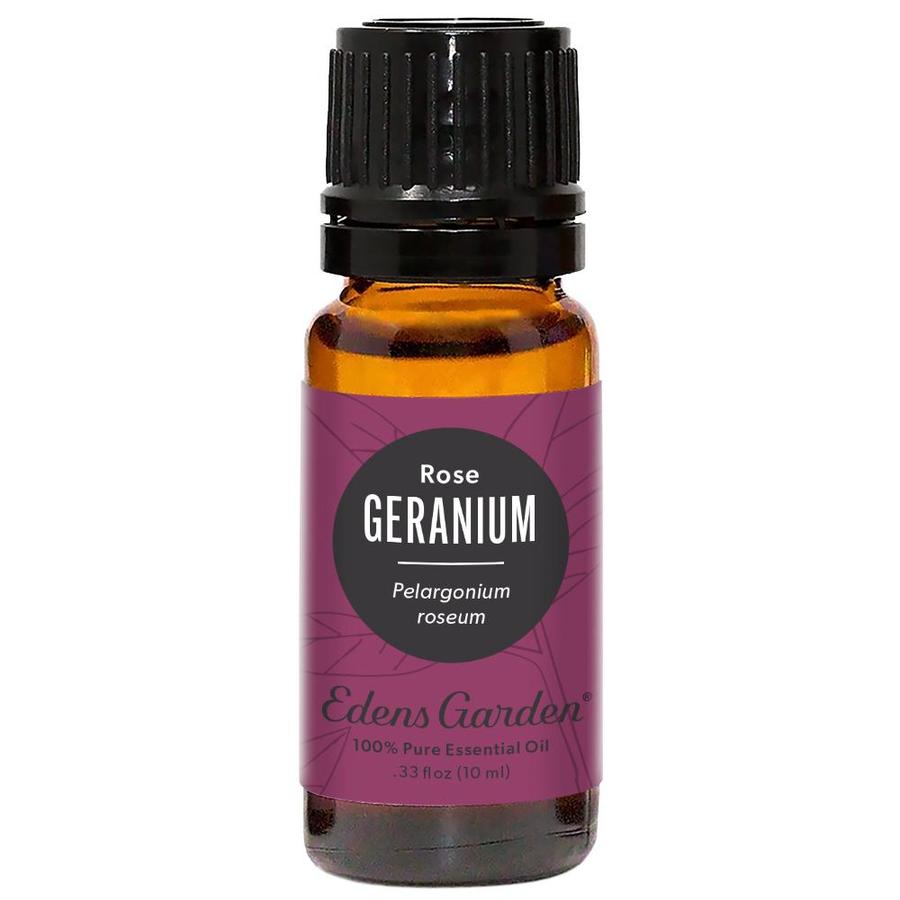





Jan Hodge
May 14, 2021 at 3:06 pm
I don’t know if you’ve noticed but they don’t always include the plant that matches the oil (see their recent blog on Clove and Jasmine ;)